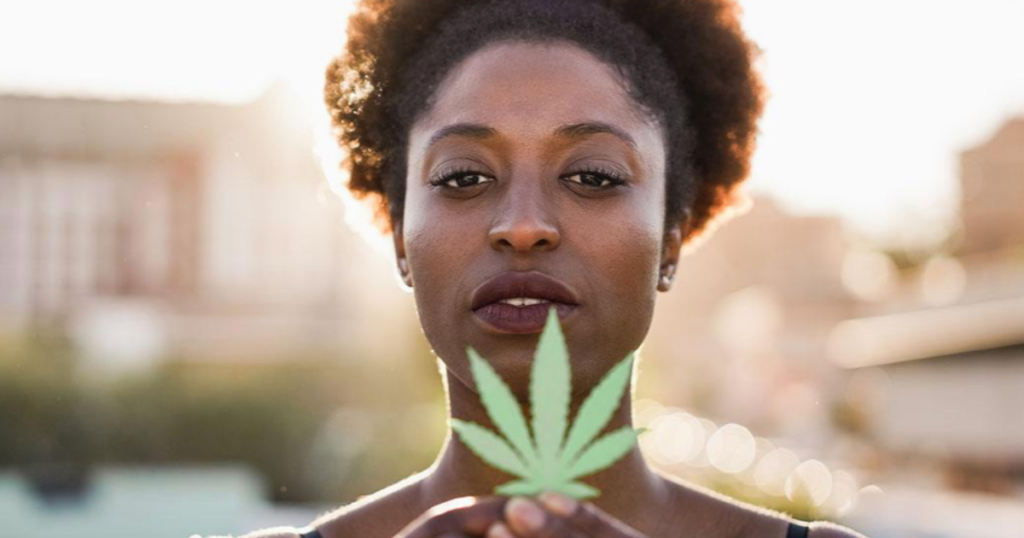For centuries, cannabis has been used by African indigenous communities for a variety of cultural and spiritual rituals while still being utilised as an effective therapeutic agent.
Unfortunately, the crop has been through a murky legalisation history in Africa and other continents. It wasn’t until the 21st century that some African countries began to view cannabis beyond the purported harm it bears. The global cannabis renaissance shone a light on its medicinal value and the economic potential it holds.
With this, the stigma associated with cannabis is slowly fading away. More African countries have come up with favourable legislation that supports the cultivation, processing, and distribution of medical cannabis. The global demand for medical cannabis is on the rise, and countries like South Africa, Zimbabwe, Morocco, Ghana, Eswatini, and Rwanda are at the forefront of meeting this demand.
According to data from United Nations, Africa produces about 10,000 metric tonnes of cannabis annually. In 2018, the African Regional Hemp and Cannabis Report indicated that Africa’s total cannabis value totalled 11 per cent of the global market at 37.3 billion dollars. This piece takes a closer look at the medical cannabis industry in different African countries. It mainly focuses on the changing regulations, research, and various treatment applications.
South Africa
South Africa has legalised medical marijuana for all health conditions. Through a licensed physician, the patients can request cannabis to help alleviate their health-related issues. The application is made online by the physician. Once approved, a registered pharmacist dispenses the cannabis.
S.A is the first African country to establish a state-of-the-art research facility that focuses on establishing and providing research-based, proven approaches to cannabis and cannabis-centred therapies. The facility uses advanced technology and equipment to carry out its role of receiving, identifying, and processing cannabis, analyzing the end product and conducting research and development.
The country is a pioneer in the legalisation of cannabis for medical and private use in Africa. The laws governing the crop are lenient, which paves the way for tons of research and economic opportunities for farmers and investors alike.
Rwanda
Rwanda allows the cultivation, distribution, and medical use of cannabis. On 28th June 2021, the country legalised cannabis prescription by qualified and licensed medical practitioners. The law does not specify the ailments screened for a patient to get approval to use medical cannabis. However, it insists on informing the patient on medical cannabis to allow them to make informed decisions.
Additionally, only accredited doctors by the ministry of Health can prescribe cannabis. Anyone handling cannabis beyond the scope of law stands to face prosecution in accordance with the law. These measures are aimed at preventing the misuse and abuse of the drug.
Plans to enforce the law are currently underway. Prescribing and exportation of medical cannabis in Rwanda is expected to begin within the next 12 months.
Morocco
On May 26th, 2016, Morocco legalised cannabis for medical, industrial, and cosmetic use. This is one of the biggest global producers of cannabis and hashish/kif. In 2020, a study estimated that the country produced about 700 tonnes of the crop. The law also stipulates that only patients with certain conditions can get access to medical cannabis.
Medical and industrial farmers need to be citizens of the country and be registered owners of the land they plan to cultivate. If the land is not theirs, they will require consent from the owner, allowing them to use the piece of land. The last requirement is that the farmers will need to be members of a cooperative.
The passed bill includes the setup of an ad-hoc agency that will act as a supervising body for anything cannabis-related in the country. This includes relevant authorisations and ensuring farmers are compliant with the law.
Since the legalisation, a prominent Moroccan laboratory has embarked on a series of studies to investigate the medical and pharmacological application of cannabis and other aromatic plants.
Zimbabwe
In 2018, Zimbabwe passed a law that permitted the use of cannabis for medical and research reasons. However, the terms they initially stipulated were considered too harsh, and the fees were exorbitant, which locked out many local farmers and discouraged investors. In May 2020, the government revised the requirements and developed a favourable set of policies and operational conditions.
Investors are now allowed to own 100 per cent of their investments and set up facilities across the country without restrictions. Previously, the investors were required to co-own their assets with the Zimbabwean government or its entities and work within set locations. Additionally, the investors are given an Investment Stability Agreement (ISA) that assures them of security.
Business opportunities in Africa
The medical cannabis industry is a sector that promises job creation and numerous economic opportunities. Additionally, the legalisation of the crop allows patients in dire need of alternative treatment to access it easily and legally. In Africa, the myths and stigma associated with cannabis are slowly being replaced with scientifically-backed evidence.
Consequently, more people, governments, and entities are more welcoming to the cash crop and the benefits its promises.
Innovative business models such as Crowdgrowing, a system that connects cannabis producers with people from around the world willing to finance their projects, are a game-changer for an industry that is blooming.
Leading crowd growing platforms like JuicyFields’, are making medical cannabis accessible for more and more people.
You too can join the platform and start making profits with every harvest.

The post The medical cannabis industry in Africa appeared first on Cannabis Health News.



